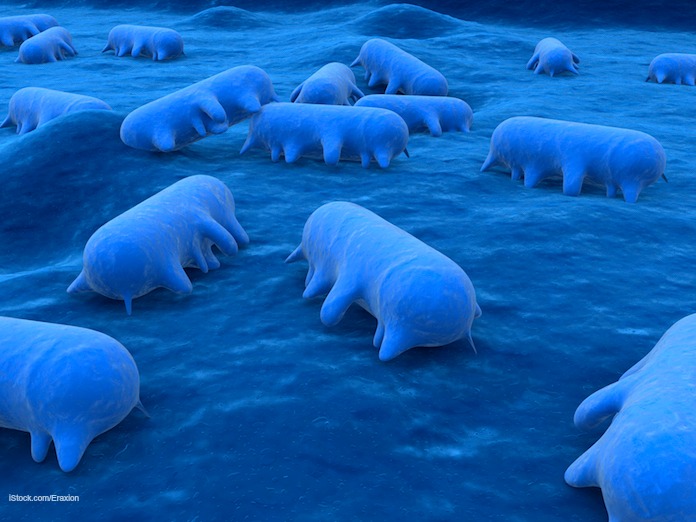Did you know children are more likely to get Salmonella poisoning than adults? And that they are among those most likely to develop severe infections from the bacteria?

Children, especially young children and infants, are among those at special risk for food poisoning from Salmonella and other bacteria because their immune systems are not fully formed and developed. Others at high risk for serious complications from these infections include seniors, pregnant women, daily antacid users and those with compromised immune systems including people with HIV/AIDS, organ transplant patients, and cancer patients.
Symtoms of a Salmonella infection include nausea, vomiting, abdominal cramps and diarrhea that is sometimes bloody. These symptoms can cause dehydration in children and infants quickly. Complications include bacteremia, when bacteria eneters the bloodstream; enterocolitis, when bacteria inflames the tissues of the digestive tract; meningitis, the inflammation of the membranes covering the brain and spine and osteomyelitis, a bone infection.
About 40 percent of the 419 people sickened in the current Salmonella outbreak linked to Foster Farms chicken have required hospitalization. One of them is a child who needed brain surgery to address serious complications from the infection.
Food Poisoning Bulletin Publisher and food safety attorney Fred Pritzker represents that child’s family. “Far too often, children bear the brunt of food safety failures,” Pritzker said. “They get sicker faster, their illness lasts longer and they’re frequently left with lifelong problems. A pathogen that produces minor illness in adults may cause profound problems in children. We cannot allow lax food safety policies to continue harming our most vulnerable citizens.”
Children and others in the high-risk groups mentioned above should avoid certain foods that present an elevated risk of Salmonella. These include foods that contain raw eggs such as: Caesar salad dressing, tiramisu, homemade ice cream, chocolate mousse, eggnog, cookie dough, and some frostings or icings. Unpasteurized milk and juice should also be avoided. Chicken should always be thoroughly cooked to a temperature of at least 165°F. Never serve eggs that are cooked less than well done. And make sure that you avoid cross-contamination between chicken juices and foods that are eaten fresh.




